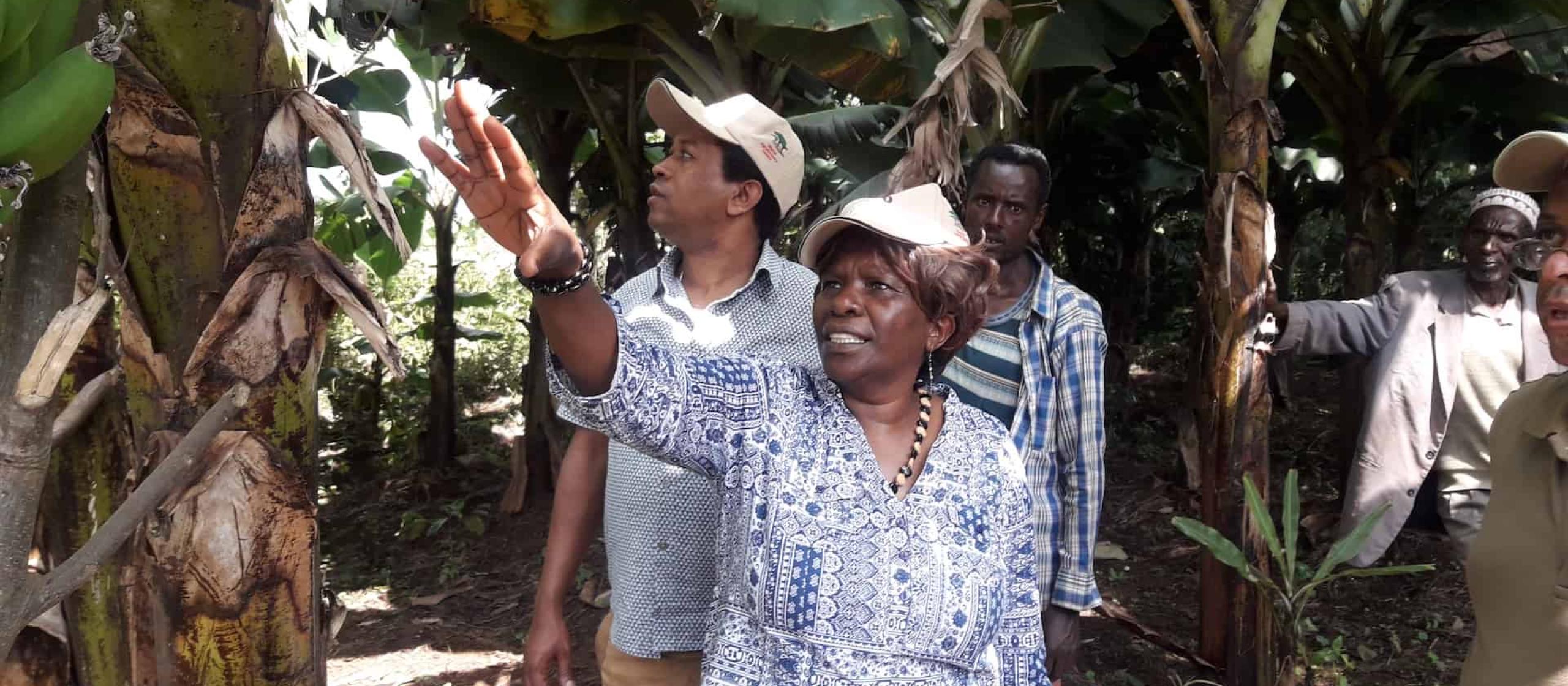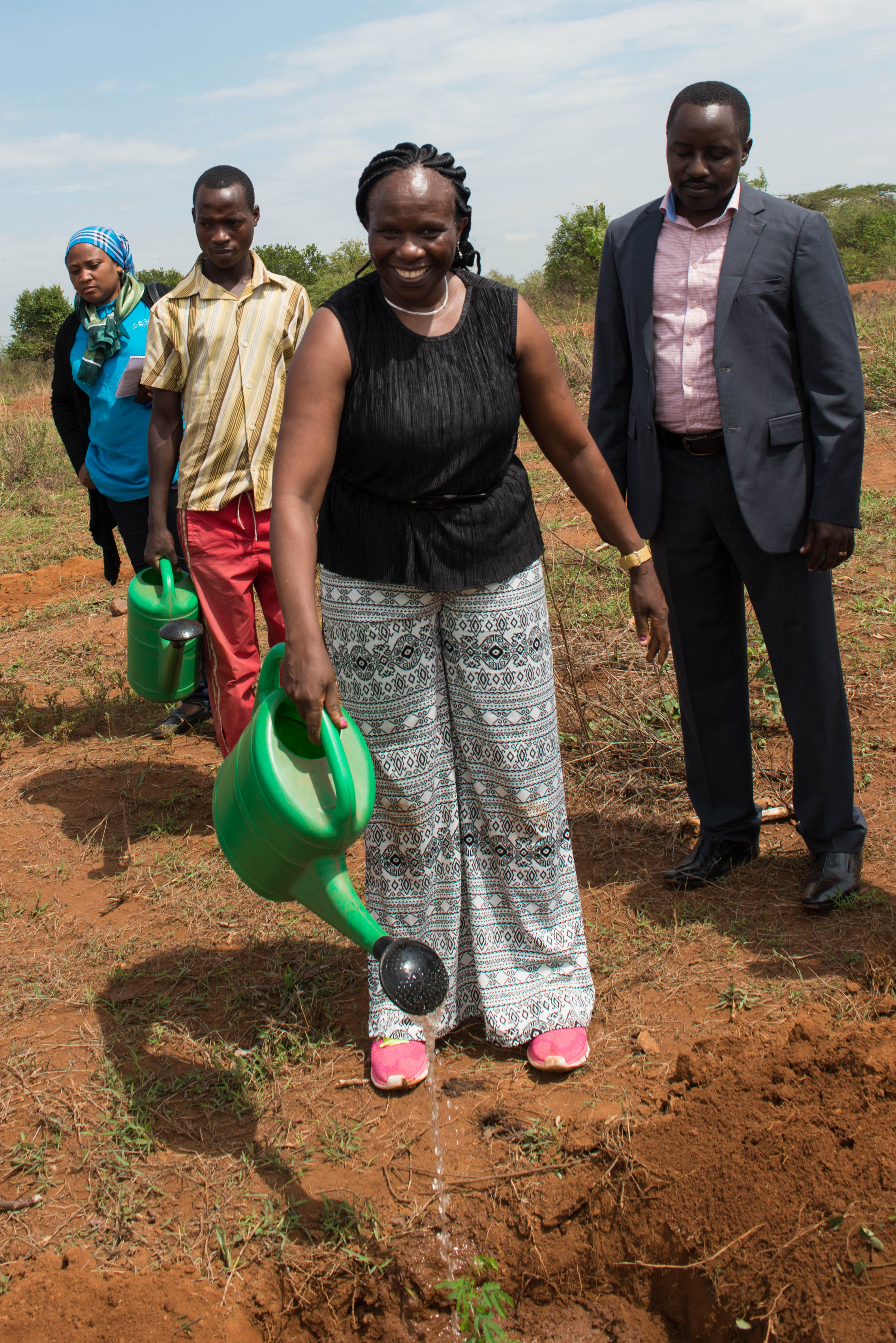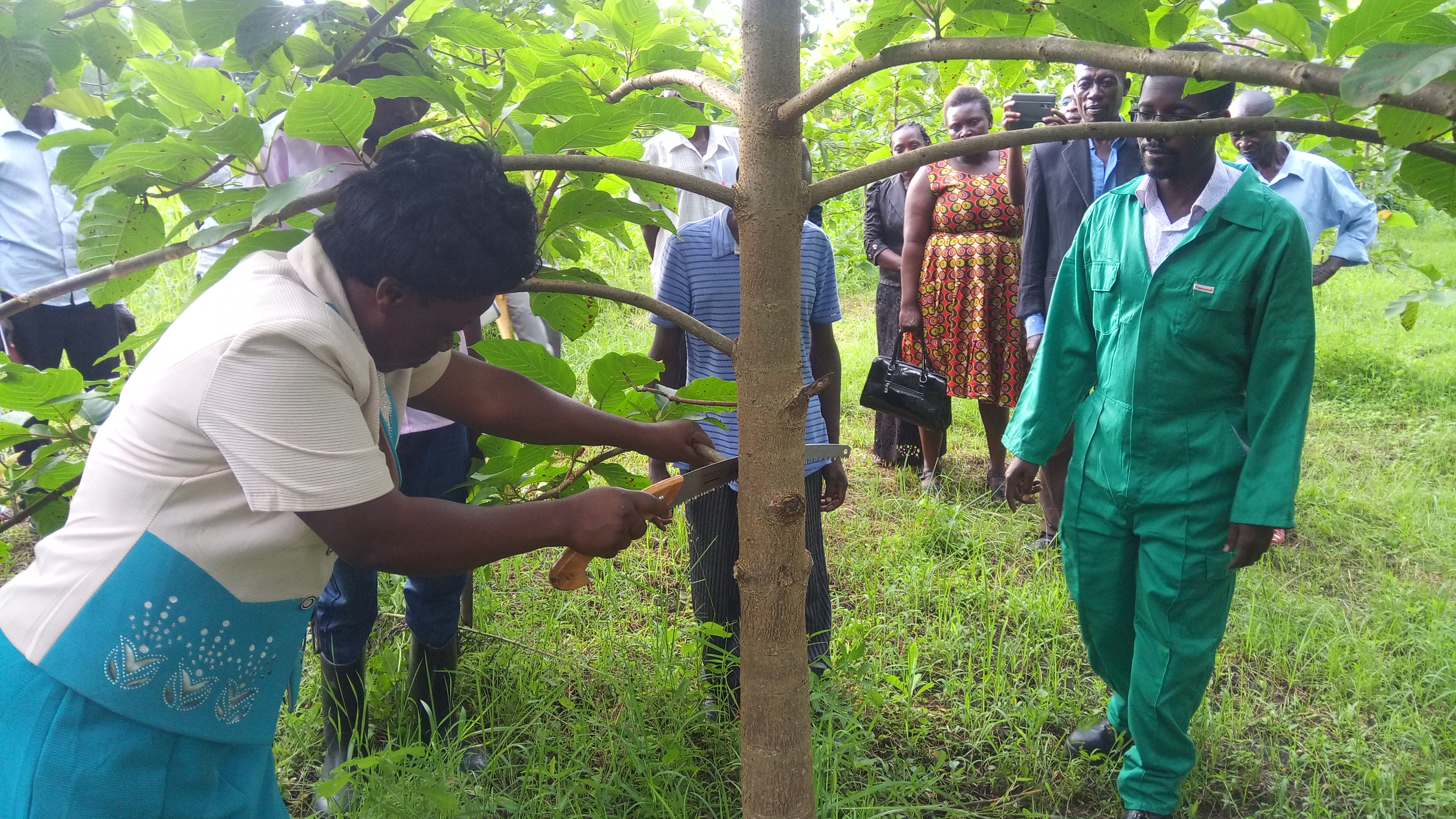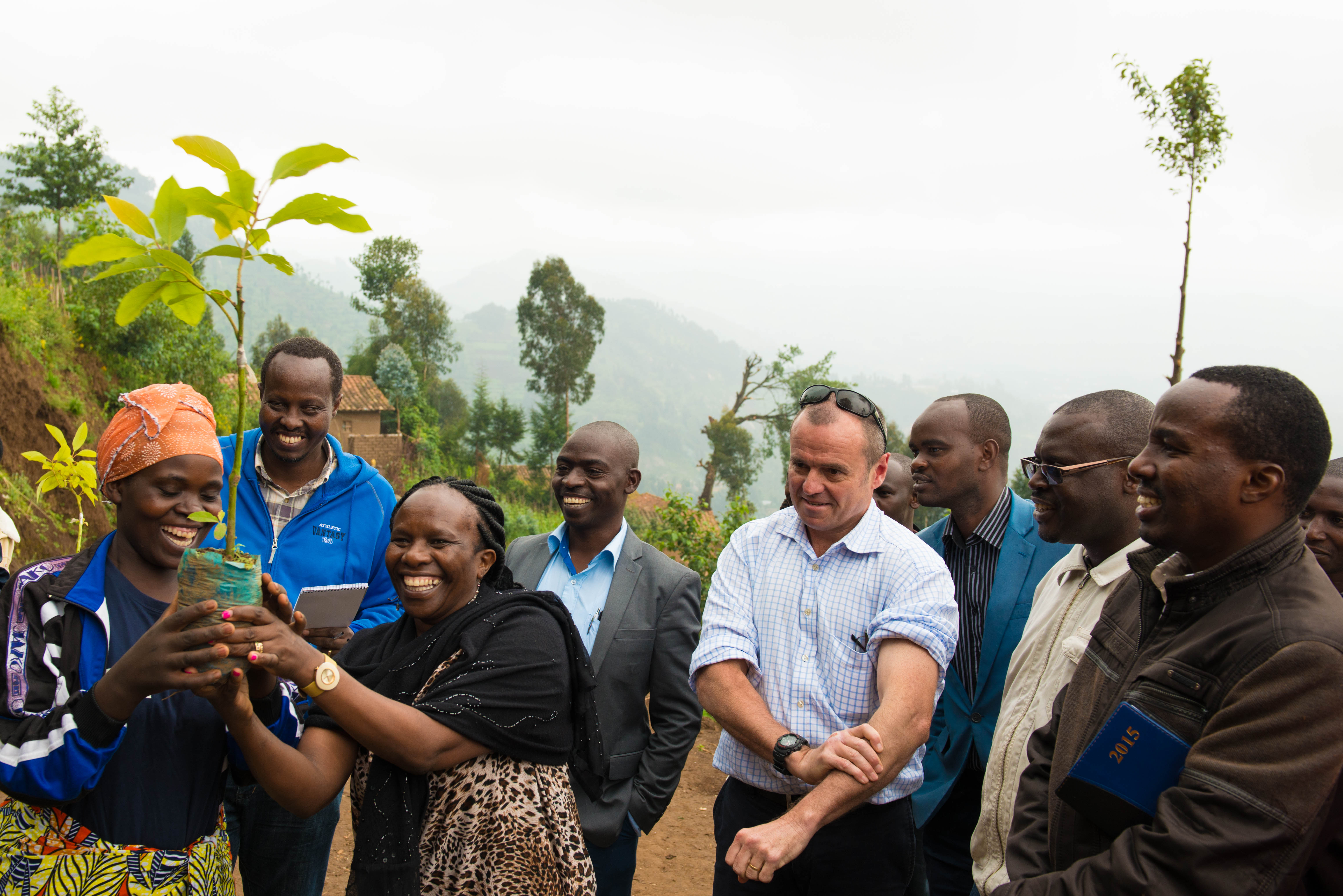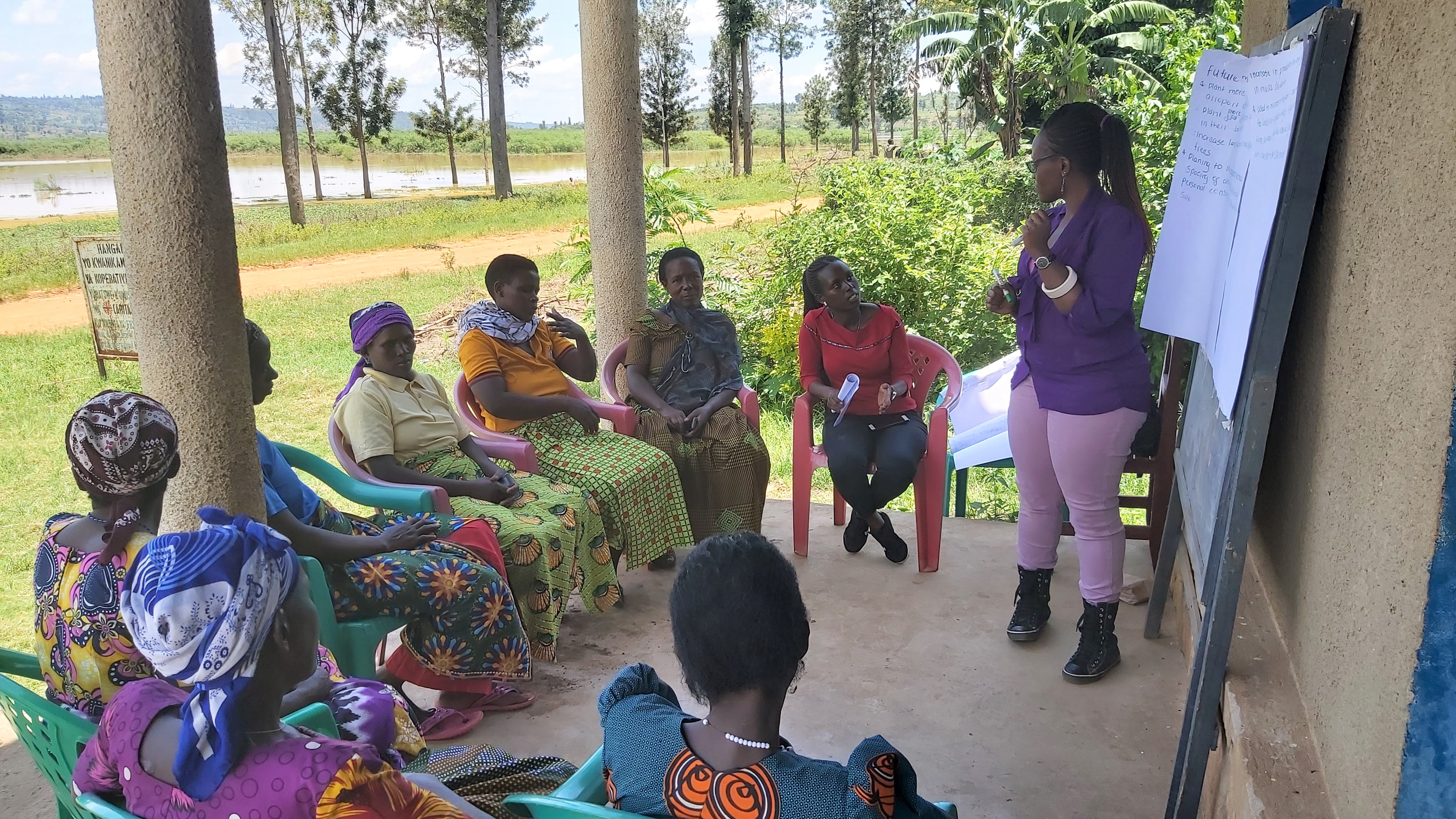- HomeHome
-
About ACIAR
- Our work
- Our people
-
Corporate information
- ACIAR Audit Committee
- Commission for International Agricultural Research
- Policy Advisory Council
- Agency reviews
- Executive remuneration disclosure
- Freedom of information (FOI)
- Gifts and benefits register
- Information publication scheme
- List of new agency files
- Contracts
- Legal services expenditure
- Privacy impact assessment register
- Commonwealth Child Safe Framework
- Benefits to Australia
- Careers
- 40 years of ACIAR
-
What we do
- Programs
- Cross-cutting areas
- Resources
- Where we work
-
Funding
- Research projects
- Fellowships
-
Scholarships
- John Allwright FellowshipScholarships to study in Australia for ACIAR partner country scientists to have Australian postgraduate qualifications
- ACIAR Pacific Agriculture Scholarships and Support and Climate Resilience Program
- Alumni Research Support Facility
- Publications
- News and Outreach
Date released
08 April 2021
It’s been one month since International Women’s Day with the 2021 theme focusing on women in leadership and how they can help achieve an equal future in a COVID-19 world.
ACIAR recently spoke to ICRAF senior scientist and Regional Coordinator for Eastern and Southern Africa, Prof Catherine Muthuri, about what agroforestry means to African smallholder farmers, how it contributes to gender equity, and what impacts the COVID-19 pandemic has had on research efforts.
ACIAR: Why is agroforestry important for smallholder farmers, especially women, in eastern Africa?
Catherine: Most countries in eastern Africa suffer from perennial food shortages, with much of the farm labour being vested in women. Trees have been a source of relief for many in the form of food (fruits), income, and a source of household cooking fuel.
Since 2012, ICRAF and ACIAR have been working towards improving food security and smallholder livelihoods by fostering the widespread adoption of appropriate locally adapted agroforestry practices in partnership with other agencies.
The four-year Trees for Food Security project has been exploring how the adoption of agroforestry in eastern Africa can improve smallholder livelihoods through a systems approach that encompasses agriculture intensification, value-chain development, water management, and livestock management through farmer-led approaches.
Using a participatory approach, we provide a range of agroforestry options (tree products and services) suitable for different farmer contexts to enhance ownership, relevance, sustainability and adoption. Additionally, through the project, we have established five Rural Resource Centres - in Ethiopia, Rwanda and Uganda to supply quality and diverse tree seedlings, peer learning and training centres.
Women play a pertinent role in the farming system and involving women in decision-making is key to designing gender-appropriate and inclusive interventions and technologies. In Uganda, we tested how new pruning techniques can create a water reserve in the soil for other crops such as coffee. Additionally, in Rwanda, we have explored how innovative but straightforward use of trees as stakes contributes to high-yielding and nutritious beans.
In Ethiopia, findings from farmer trials integrating soil and water conservation have shown that optimal post-planting tree management practices such as watering and fencing are critical for tree survival and growth. In this way, there will be enhanced tree cover on homesteads and farmlands that will, in turn, reduce the time taken to source tree products by women, such as fruits and fuelwood from outlying areas.
And with the recently ended Developing value chain innovation platforms to improve food security in East and Southern Africa (VIP4FS) project, we explored the drivers of innovations around coffee, honey and milk chains and how they influence smallholder farmers engagement with markets.
These projects have amplified the vital role trees play in easing the women’s burden, be it economically or socially, while managing their farm landscapes.
ACIAR : How has ICRAF been supporting women at the project level during COVID-19?
Catherine: Our project implementation approaches are gender-responsive as we endeavour to ensure that women and girls benefit from our interventions. Despite the COVID-19 pandemic and related disruptions, the Trees for Food Security project strived to build women and young people in agroforestry while observing the prescribed government public health measures. For instance, in Mount Elgon, Uganda, we held training on climate-smart agroforestry, reaching 364 women and 252 youth. This training empowered the participants with skills on growing suitable trees for soil fertility improvement, environmental-friendly options to manage pests and diseases on-farm and appropriate tree-crop management practices hence contributing to improved food and income security during and beyond the pandemic.
Additionally, in the region, young female scientists actively receive mentorship in professional skills like writing scientific publications and other life skills from their senior colleagues. This is a crucial way of strengthening professional skills and succession planning in terms of project management and career growth.
ACIAR : Working towards gender equity is not a standalone job but one that calls for partnership across various divides. How has ACIAR and ICRAF implemented the multidisciplinary collaboration on a national and international level?
Catherine: The three projects have continuously benefitted greatly from partnerships between different stakeholders like the national governments, research institutes, universities and NGOs. In the Trees for Food Security (T4FS) project that I manage, one-third of the key project team comprises women. We endeavour to train and mentor women to pursue research through scholarships and opportunities to present their work on international platforms. For example, through the ACIAR John Allwright fellowship, we supported one woman in Ethiopia to pursue her PhD in Australia. Similarly, through the ACIAR Launch Fund, one-third of the women from T4FS and VIP4FS projects were sponsored to attend the World Congress on Agroforestry in France in 2019.
In both phase one and two of the Trees for Food Security project, we have had the continued support and presence of the Australian High Commission offices from Ethiopia and Kenya. They have joined our stakeholder engagement events to learn more about the ongoing partnerships between ACIAR and ICRAF, as well as the continuing Australian government support.
Additionally, national government commitment and support have been immense. In Uganda, the Director of Agricultural Extension Services, Ministry of Agriculture Animal Industry and Fisheries, Ms Beatrice Byarugaba, has continuously assured the government’s support and commitment to enable the project achieve its aim of supporting smallholder farmers to improve their annual household incomes. The RRC approach has been widely adopted in Ethiopia, with sixteen more RRCs established across the sites. There are ongoing discussions with the job creation commission and MasterCard Foundation on how the RRC approach can be scaled to create unemployed women and youths’ jobs.
ACIAR : What are some of the impacts of the projects you have seen concerning women and girls’ empowerment?
Catherine: In most East African countries, agroforestry is spearheaded by women and youth because they comprise most of the labour force on the farm. Being a critical component to the projects’ success, we have deliberate efforts to ensure our capacity development activities encompass women and youth.
We have trained 7,651 community members on proper methods of tree planting, stakes selection, and fodder production across Ethiopia, Rwanda, and Uganda. Of these, 3,770—almost half—are women. Through these initiatives, women have raised their level of disposable income from the sale of timber, firewood, tree seedlings, fruits, for instance, tree tomatoes, mangoes, pawpaw’s, beans, and milk, emanating from the training received. The initiative has also empowered them to take leadership roles in the cooperatives and groups, thus influencing decision making.
Besides, of the 3,000 farmer participatory trials initiated by the project, around a third are hosted by women or co-hosted by husbands and wives. This has enhanced synergies in resource and benefits sharing at the family level. For instance, a tree means timber for furniture and construction to a man, while to a woman, the pruning’s are firewood for the household. Income from both raises the family income to help cater to needs like school fees and health insurance.
Additionally, the project has supported postgraduate students (both PhD and MSc). Of the 14 students supported, five (slightly more than a third) are females.
ACIAR: Final thoughts?
Catherine: I am passionate about working with women and youth and seeing them become empowered to support their families and contribute to the transformation of landscapes from which they draw their livelihoods.
Unfortunately, in our African setup, women tend to be a bit segregated, especially regarding new opportunities and ideas for income generation and resource ownership. Cognisant of this, I have been at the forefront in putting measures in place to ensure that women are given equal opportunities as men. I urge my fellow researchers to embrace gender equity as our future in socio-economic development greatly rests on all groups’ contribution and participation.
Finally, I applaud all the African farmers, our great partners in research and innovations. Together, we achieve our dream of ‘productive farms, healthy lives, restored landscape and a better and transformed world.'
Professor Catherine Muthuri is the Regional Coordinator for the Eastern and Southern Africa region for World Agroforestry - ICRAF. She holds a PhD in Plant Ecophysiology from the Jomo Kenyatta University of Agriculture and Technology (JKUAT), Kenya, under a split-site scholarship at Nottingham University, UK, an MSc in Plant Physiology and Biochemistry, and a Bachelor of Education (Botany and Zoology) degree.
